On May 27-28, 2024, "80 Years after Bretton Woods: Building an International Monetary and Financial System for All" and the 2024 Tsinghua PBCSF Global Finance Forum were successfully held in Hangzhou, Zhejiang Province, China. Focusing on the theme of Global Macroeconomic Shifts: Debt, Inflation, and Low Growth, Session I convened leading economists and policymakers to discuss significant global economic trends. The session was moderated by Mr. Tian Xuan, Chair Professor and Associate Dean of Tsinghua PBCSF, with dialogue led by Mr. Zhu Min, Founder of the Global Economic Governance 50 Forum and former Deputy Governor of the PBoC and former Deputy Managing Director of the IMF, along with Professor Michael Spence, Nobel Laureate in Economics and Philip H. Knight Professor and Dean Emeritus of Stanford Graduate School of Business. Key participants included Wang Yiming, Vice Chairman of the China Center for International Economic Exchanges and former Vice Minister of the Development Research Center of the State Council; Zhang Tao, Chief Representative for Asia and the Pacific at the BIS; Andreas Dombret, Global Senior Advisor at Oliver Wyman and former Board Member of the Deutsche Bundesbank; Huang Haizhou, Special-Term Professor at Tsinghua PBCSF and member of the PBoC Monetary Policy Committee; and Nouriel Roubini, Professor Emeritus at NYU Stern School of Business and CEO of Roubini Macro Associates.
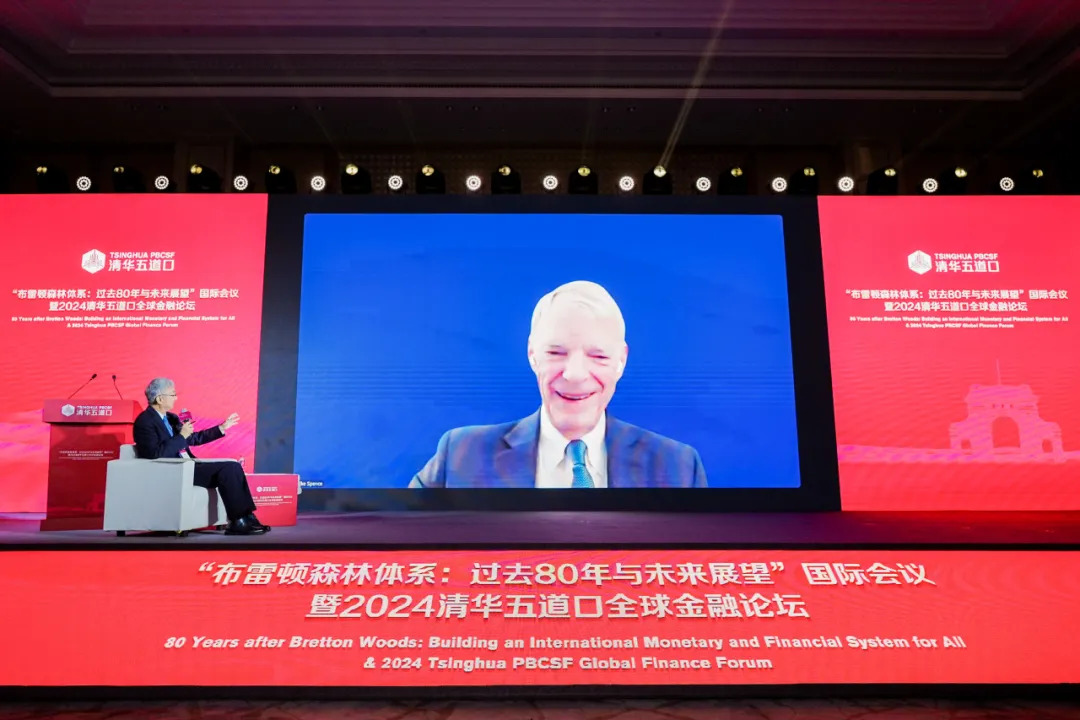
The picture shows the high-level dialogue in progress
In the discussion with Michael Spence, it was noted that rapid economic growth in the early post-war period was primarily driven by investment and organizational effectiveness, with the emergence of economies, particularly China, significantly boosting the global economy. However, the growth of these economies has gradually slowed over time. The global economy currently faces numerous challenges including climate change, wars, epidemics, and an aging population, leading to supply chain disruptions and productivity constraints. Despite these issues, Michael Spence maintains a cyclical view of these problems and anticipates that advanced technology will enhance productivity and mitigate economic difficulties in the future. While Min Zhu highlighted the current slow economic growth, Spence remains optimistic about future prospects, believing that technological advancements, particularly in artificial intelligence, will bring about positive changes.
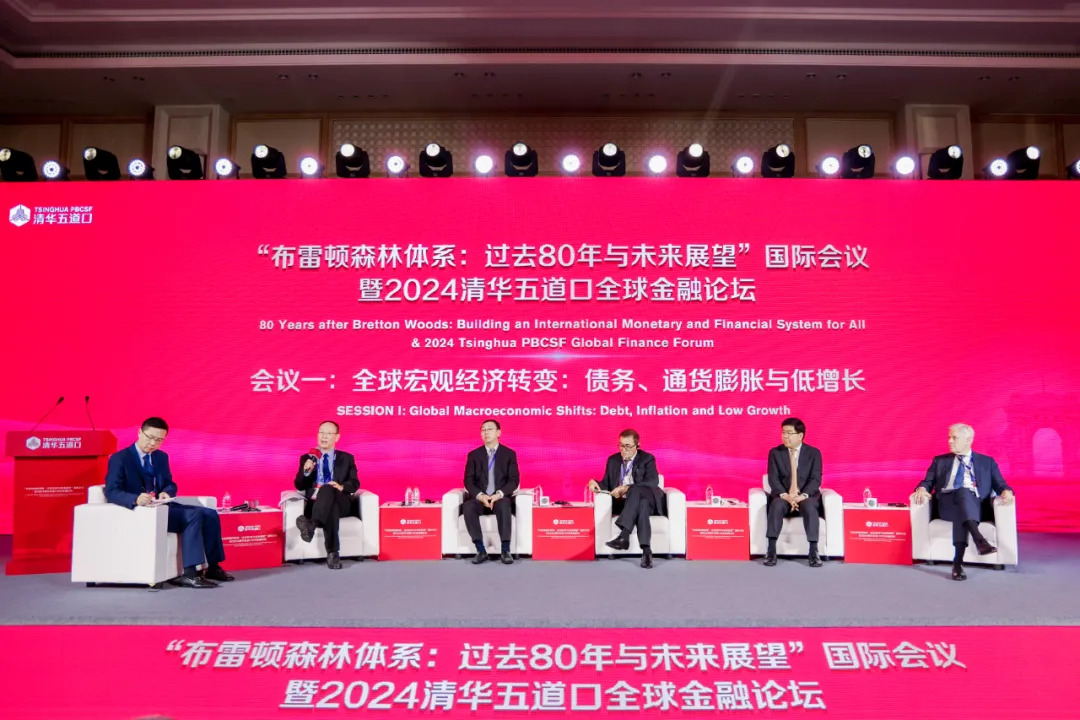
The picture shows the roundtable discussion in progress
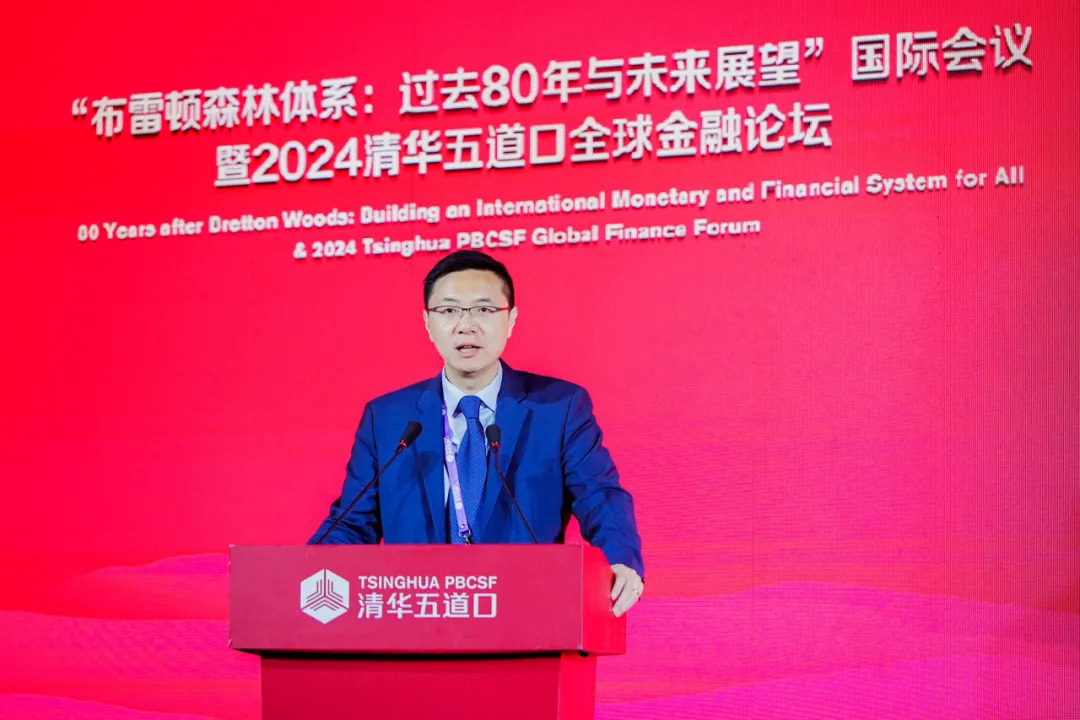
The picture shows Tian Xuan, the moderator of the roundtable discussion
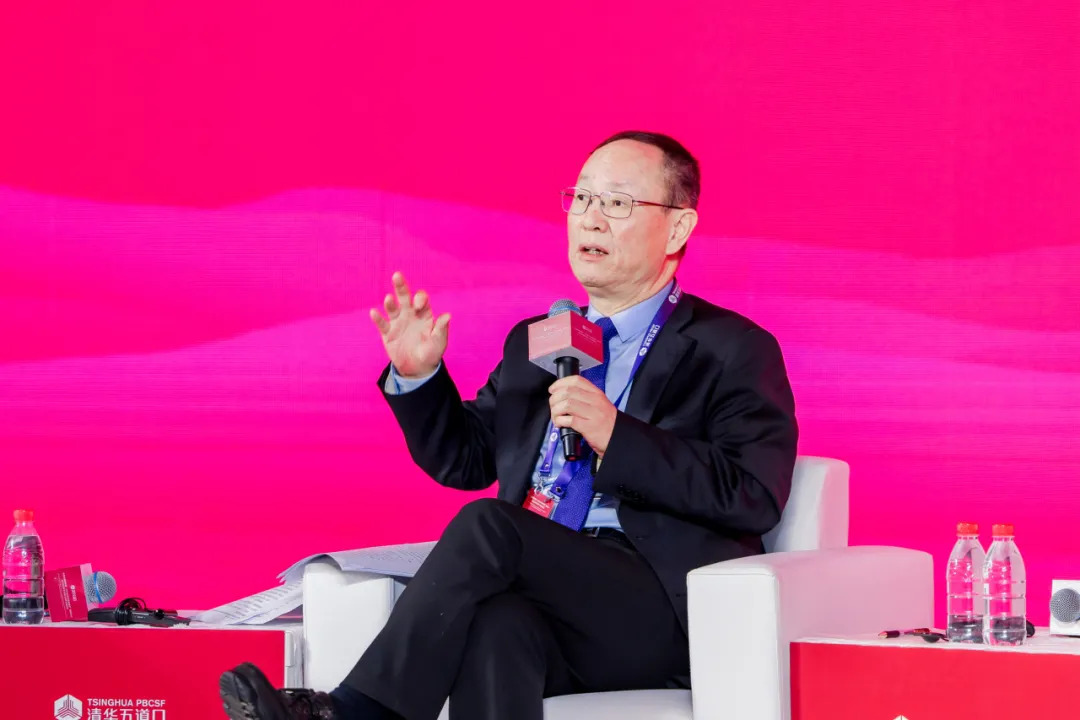
The picture shows Wang Yiming
During the roundtable discussion, Wang Yiming emphasized that since the global financial crisis, the basic pattern of the global economy has been characterized by low growth, low inflation, low interest rates, and high debt. However, this pattern is evolving post-COVID-19 pandemic into even lower growth, higher inflation, higher interest rates, and higher debt, which will significantly impact global economic and financial market trends. Wang Yiming believes that the changes in the global economic pattern will have three important implications: First, the stickiness of inflation will keep interest rates at a relatively high level, consequently increasing debt costs significantly and elevating debt risks; second, fiscal and monetary policies will face a dilemma, and the policy space to address this issue is narrowing; third, the reduction in balance sheets will affect the capital markets, as major economies begin to shrink their balance sheets, yet interest rates are unlikely to be significantly lowered, impacting liquidity and subsequently affecting the capital markets, dragging down global economic growth.
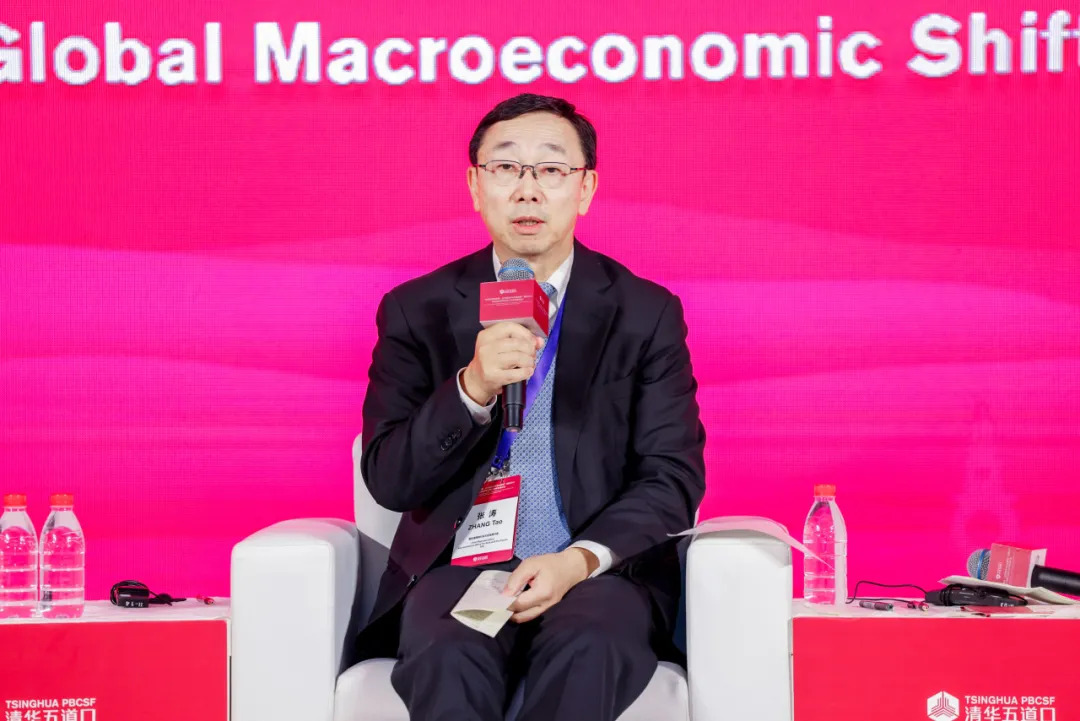
The picture shows Zhang Tao
Zhang Tao discussed the post Bretton Woods global changes and future prospects from central banks' perspectives. He emphasized the importance of central banks in managing global challenges, highlighting two key aspects. Firstly, he emphasized a shift in macroeconomic environments, particularly after the Covid. Traditionally, central banks considered the demand side when formulating their policies. However, recent supply-side shocks, including those from the epidemic, trade wars, and geopolitical tensions, have forced central banks to also consider the supply factors. This shift poses challenges for central banks in terms of policy tools and strategies. He addressed that central banks’ tasks are also complicated by high global debt levels in the era of high inflation. Global debts, including those of corporate, household, and sovereign debts, have reached historically highs. This, coupled with high inflation, raises serious concerns about debt sustainability and financial stability. He mentioned other structural changes such as population aging and mandatory green transformations. Secondly, he argued that central banks need to be well prepared for digital revolution. He highlighted the need for central banks to be nimble and adaptive to the digitalization of financial services and the future of financial system, particularly the developments of “finternet”. He highlighted that digital advances have far-reaching consequences for the financial system and people’s daily’s lives, while bear risks and costs, including cyber-attacks and more sophisticated frauds and scams.
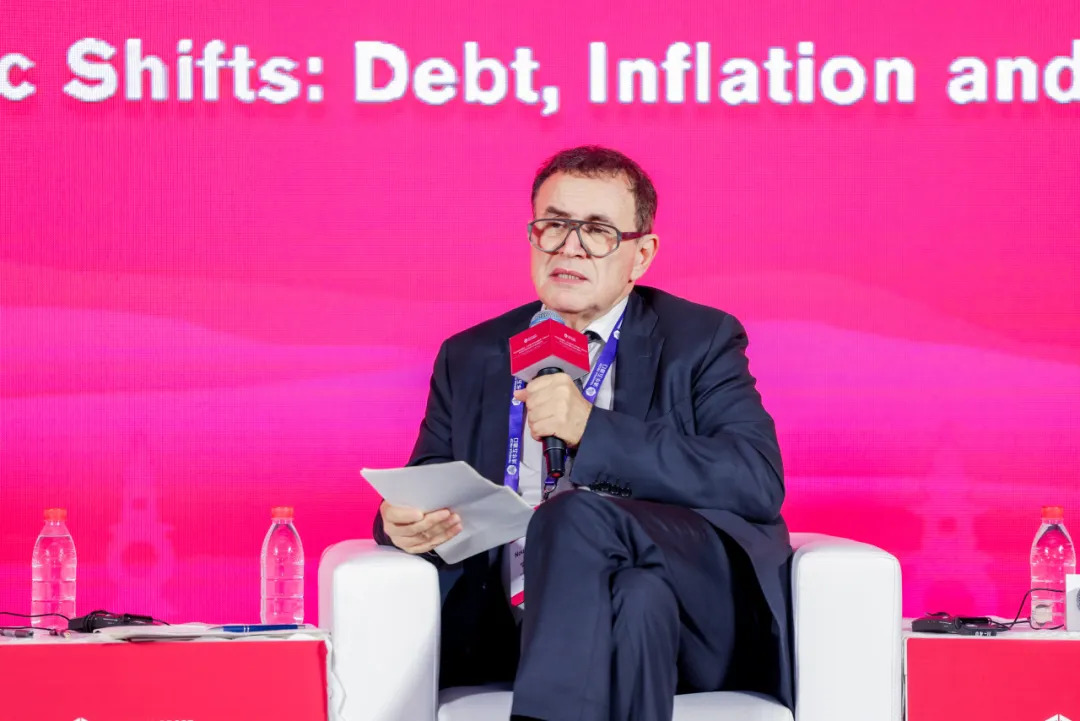
The picture shows Nouriel Roubini
Nouriel Roubini emphasizes that the world is experiencing unprecedented uncertainty, which he calls "hyper-uncertainty." He highlights significant changes and threats across various domains including economic, monetary, financial ones that interact dangerously with political, geopolitical, demographic, technological, health and environmental risks. Pre-pandemic concerns about low inflation have shifted to fears of high inflation and low growth: in other terms potential long-term stagflation, a scenario not seen since the 1970s. The focus has moved from worrying about implementing unconventional monetary policies like quantitative easing and negative interest rates to concerns about their normalization causing debt and financial crises given high levels of private and public debt. Environmental issues have escalated from theoretical discussions about climate change to immediate concerns about surpassing critical temperature thresholds, risking severe global impacts. Additionally, demographic shifts such as aging populations and declining birth rates in advanced economies and some emerging markets combined population boom in some poorer economies contributes to severe risks: climate change and failed economies and states leading to mass migration from poor to rich economies and resisted by the latter. Technological advancements in AI and automation, which were once speculative, now present both opportunities and significant risks, including permanent unemployment and greater inequality. Geopolitical risks are also mounting leading to protectionism, de-globalization, de-coupling, world fragmentation and balkanization of global supply chains. Roubini's book "Megathreats" discusses these interconnected crises and underscores the need for global cooperation to ensure financial stability, achieve inclusive globalization, maintain global security and address climate change. However, achieving such cooperation in a geo-politically divided world is particularly challenging.
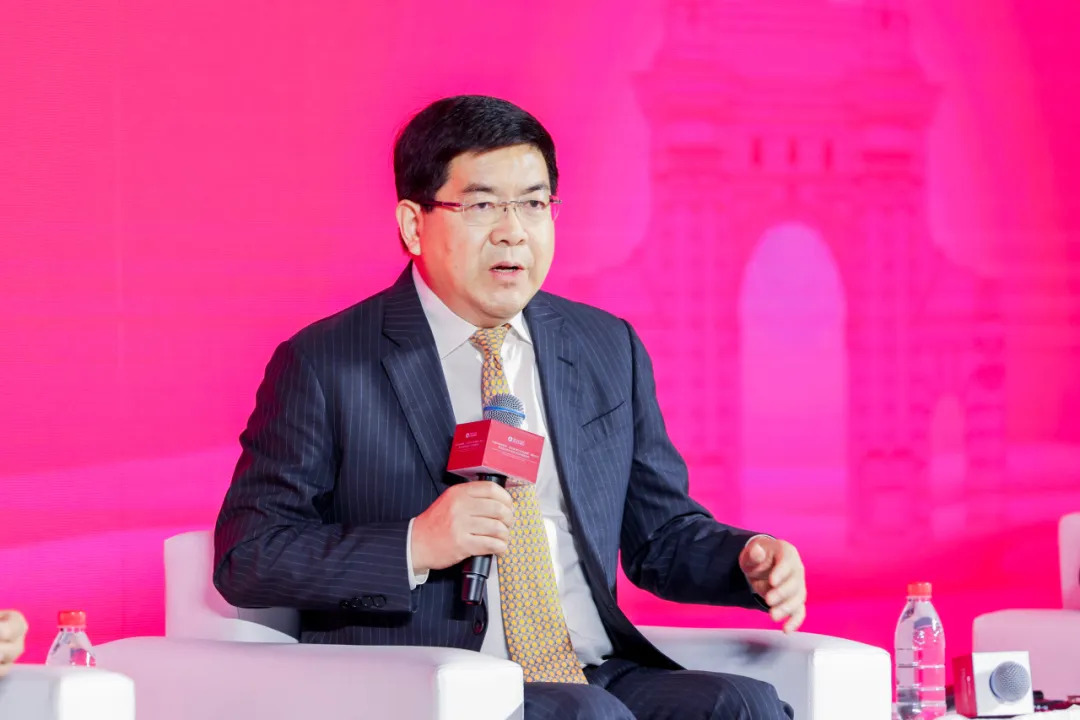
The picture shows Huang Haizhou
Huang Haizhou emphasized three key points in his speech. First, he highlighted the importance of the international monetary system. Reflecting on the Bretton Woods System negotiations in 1944, he noted that China's significant contributions in the discussions and negotiation, especially in balancing the protection of debtors and creditors, which were largely forgotten regrettably. He stressed that in times of global financial crises, policies should lean towards protecting debtors, but in more normal times, protecting creditors is vital to address the moral hazard risks. Second, he pointed out the diversity of the world. For example, despite strong global economic growth between the1990s to 2010s, different countries experienced varying degrees of prosperity. The complexity in global growth patterns requires a nuanced understanding of economic dynamics. Lastly, he emphasized that the global economic future relies on growth. Technological advancements as well as institutional reforms are essential drivers for growth. He argued that while debt concerns are valid in some countries, they should not overshadow the priority of fostering growth. Embracing globalization and multilateralism remains crucial, and institutions like the IMF should and can play a vital role in this process. In summary, Huang underscored the significance of the international monetary system, acknowledged the world's diversity in macro performances, and advocated for prioritizing growth as the key to addressing global economic challenges.
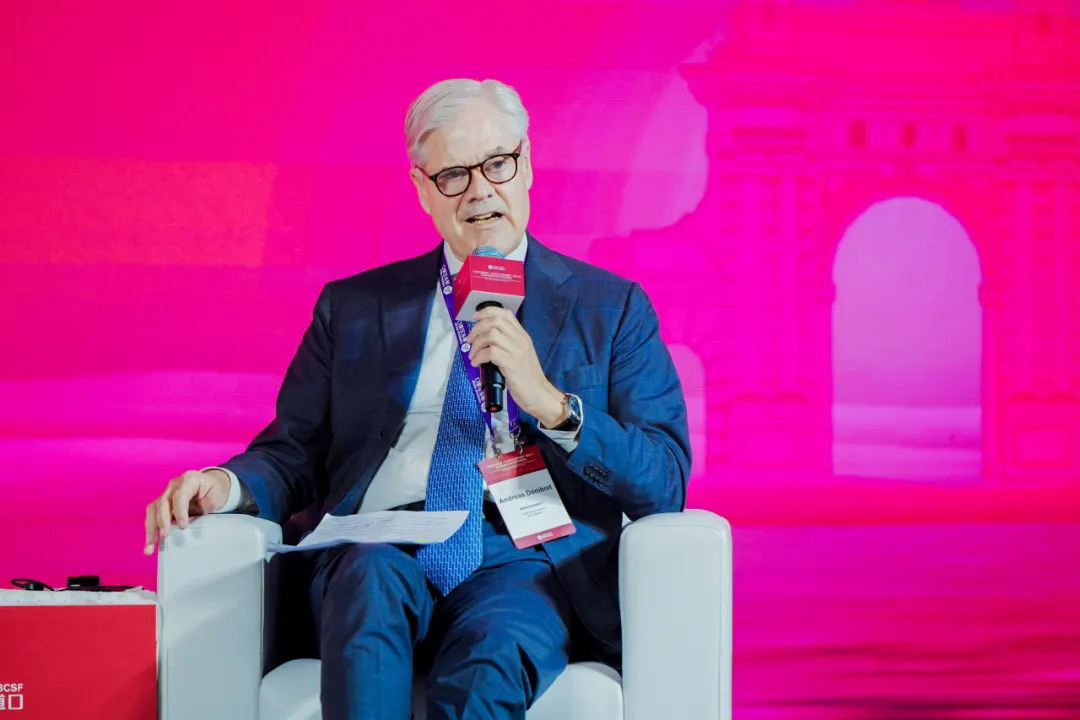
The picture shows Andreas Dombret
Andreas Dombret, Global Senior Advisor of Oliver Wyman and former Board Member of Deutsche Bundesbank. He highlighted various crises, with the pandemic being the most significant in recent times, impacting both the economy and daily life. This has led to a more pessimistic outlook among the public, affecting consumer as well as investment behavior. Following the Russian invasion of Ukraine inflation has become a major concern, impacting purchasing power and investments, and leading to wage pressures and political ramifications. Central banks, also in Europe, have faced challenges in responding to these crises with delayed monetary policy actions. Also the European Central Bank (ECB) initially viewed post-pandemic inflation as temporary, but supply chain and energy crises have shown otherwise, and inflation rates have risen significantly above 2%, requiring the ECB to implement unprecedented rate hikes. With the inflation target now in sight the ECB is rightly considering 1-2 interest rates cuts in 2024. The speaker also discussed the need for increased productivity in Europe, highlighting the importance of investments, particularly in the private sector, to enhance competitiveness. He emphasized the challenges posed by very l my high debt levels and demographic shifts, suggesting a focus on education and skill development to address labor market demands. Additionally, he stressed the importance of technological advancements in boosting productivity and called for greater cooperation in this area.